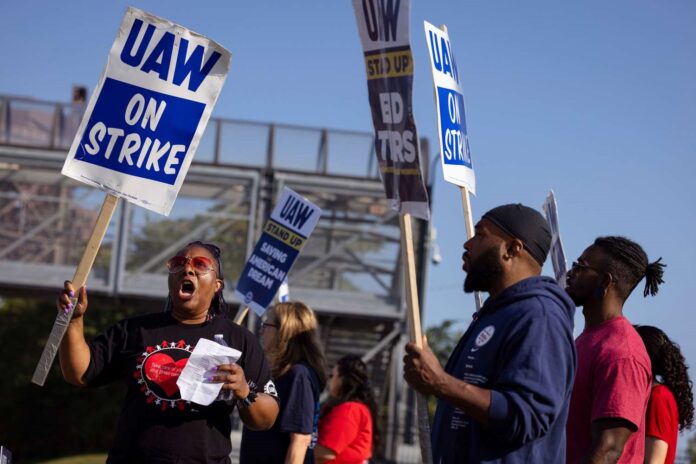The United Auto Workers (UAW) union has decided not to expand its strike against General Motors (GM), Ford Motor, and Stellantis, citing “significant” progress in negotiations. UAW President Shawn Fain announced that they would refrain from staging walkouts at new locations after GM agreed that workers at its electric vehicle battery factories would automatically become union members. However, the strike will continue at existing locations.
Approximately 25,000 auto workers at GM, Ford, and Stellantis have been on strike since mid-September, as contracts between the union and these companies had expired. This strike marked the first time the UAW targeted all three automakers simultaneously, but its scope remained limited. The union called on specific locations to participate while threatening additional strikes to pressure the companies into reaching an agreement.
So far, the UAW has ordered walkouts at five factories and 38 parts depots operated by GM and Stellantis. While there was consideration of a strike at GM’s SUV manufacturing plant in Arlington, Texas, UAW leaders felt GM had made substantial progress in negotiations.
The strike’s key issues include UAW demands for a 40% pay increase over four years, an end to practices that offer newer hires lower pay and fewer benefits, and other requests. The companies argue that meeting these demands would impact their long-term investment capabilities and have countered with a 20% pay increase and other concessions.
Negotiations also revolved around how workers at battery plants, formed through joint ventures, would be treated as the industry prepared to scale up electric vehicle production.
This strike has drawn attention from both US President Joe Biden and former President Donald Trump, who is seeking re-election. Labour tensions have been a growing concern across the country. Fain emphasised that the fight for better contracts extended beyond just auto workers, stating, “This is the entire working class.” He added, “It’s shameful where we are as a nation.”

















